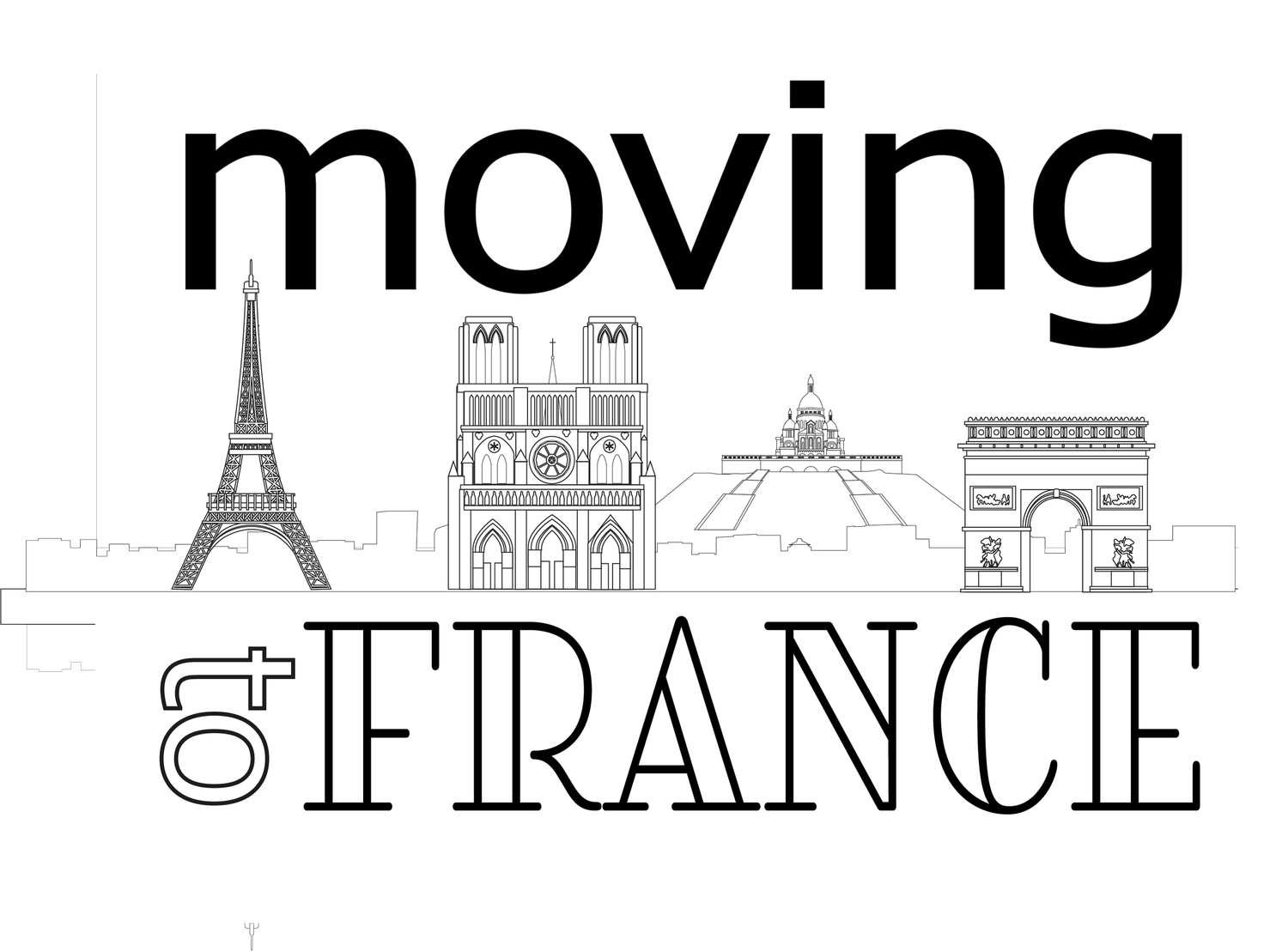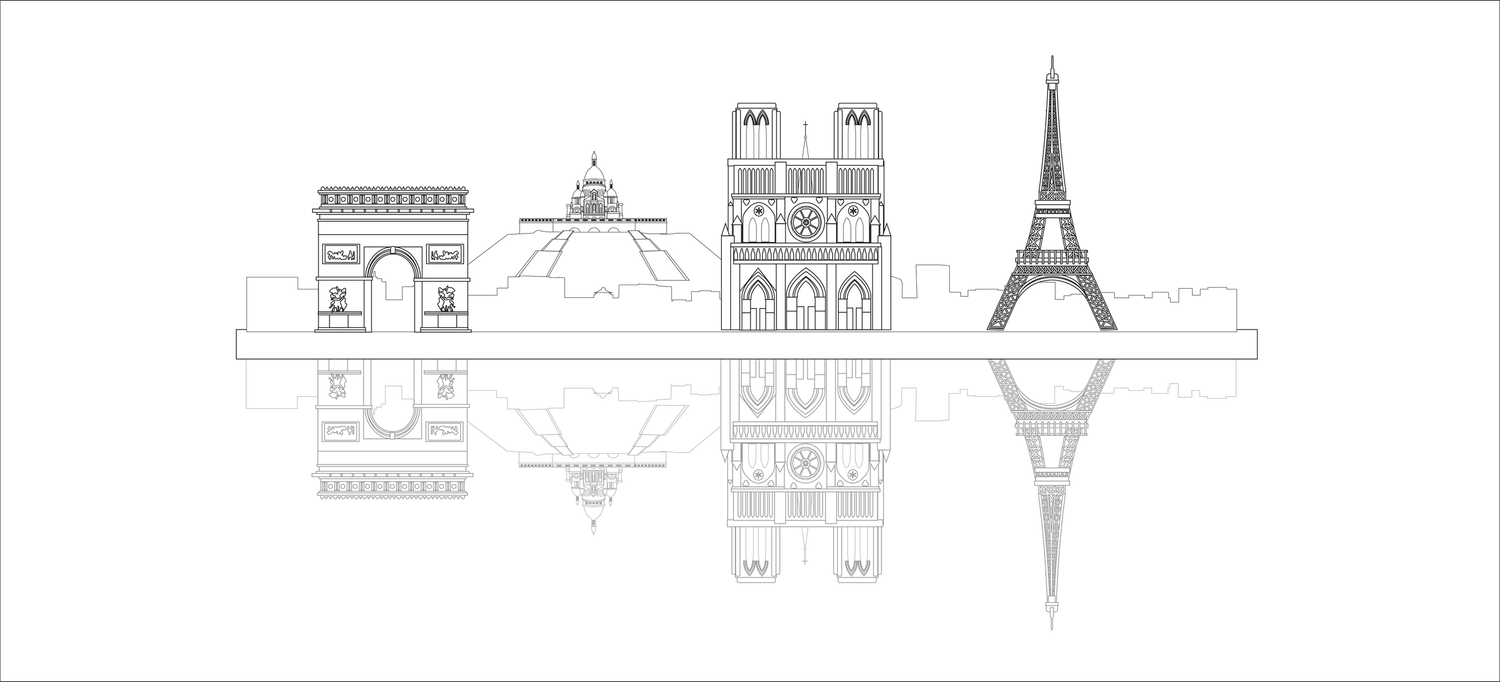Buying a home in France
Buying a home in France is very different from buying a home in California!
How to Buy a Home in France
Guide updated as of 08/26/2023
If you're planning to buy a home in France, congratulations on taking the exciting step towards creating a new life in this beautiful country. France's diverse regions offer a range of housing options, from charming countryside cottages to elegant Parisian apartments. To navigate the French real estate market smoothly, here is a step-by-step guide to help you through the home-buying process.
1. Determining your Budget and Requirements
Establish your budget. Consider your current finances, including savings, investments, and potential mortgage options. Additionally, consider the desired location, property type, size, and amenities that align with your lifestyle and preferences. For example, what is your personality type - Do you want a beach lifestyle, or are you a ski bum? Are you happiest in the city or want to live on a farm? How much room do you need (or want)?
In California, we live in a suburb and enjoy the outdoors. We also go into San Francisco for regular culture and fine dining doses. So we chose southwestern France for the similar climate and geography and a home in the country 50 minutes from Toulouse.
2. Engage Professional Help
Hiring a reputable real estate agent specializing in the French property market seems to be a no-brainer. Still, for Americans, the business of transacting a real estate purchase in France is very different.
Working with Sotheby’s, Christie’s, ReMax, and an independent real estate agency, we learned that it is not unusual for a realtor to represent the buyer AND the seller simultaneously. Sometimes, we were asked to sign a mandat de recherche (English translation: buyer's mandate authorizing the estate agent to search for a property). The mandat served two purposes: it was proof to prospective sellers that a bona fide buyer was looking for real estate, and it created a contract of exclusivity between the realtor and the buyer within a specific geographical location.
France doesn’t have an MLS system like the United States. Although properties are available, the French seem reserved about putting their properties on the market. Perhaps it concerns properties held by single families for multiple generations. As a result, agents are attentive to prospective properties that might go on the market, and it’s not unusual for properties to linger on the market for months (years?) or until the seller is satisfied with the property sale conditions.
Our recommendation is to shop for your real estate agent very carefully. Look for an agent who works with a significant real estate agency with resources to support you. An experienced agent will guide you through the entire process, provide knowledgeable advice regarding your transaction, and provide you with everything you will need to complete your purchase, such as general information on taxes, utilities, and services in the area of your choice. They will guide and assist with property searches, and if the realtor is not representing the buyer concurrently, they will negotiate on your behalf. Your realtor will also suggest a notary (notaire), which is essential, as they handle the legal aspects of the transaction on behalf of the French government (much like our title companies in the USA), ensuring a smooth and secure purchase.
3. Property Search
Your real estate agent will present you with suitable properties based on your requirements. When you visit various locations and explore the neighborhoods, assess proximity to amenities, transportation links, and other factors that are important to you. Make sure to take notes and photographs and gather as much information as possible during each visit.
4. Making an Offer
When you find a property that meets your criteria, your agent will assist you in formulating an offer. In France, there are three steps to buying real estate.
The first is the promesse de vente, a contract binding the price of the sale of the property to the buyer. The buyer and seller sign it. The second step is a written agreement (compromis de vente) outlining the terms and conditions of the transaction, which acts as a preliminary sales contract. By French law, the compromis allows for a ten-day cooling-off period during which the buyer can retract the offer without penalty. When signing, a 5% deposit will typically be paid in escrow to the notary overseeing the transaction. If the buyer retracts the offer after ten days, the 5% deposit is forfeited. During this period, the seller is bound to agree to all terms and cannot withdraw from the sale. The last step is the acte de vente, when both parties formally meet at the Notaire’s office to transfer the title from seller to buyer.
5. Financing Your Purchase
Secure your finances by either paying cash or applying for a mortgage. French banks provide financing options to non-residents, making it accessible for foreigners to purchase property. To prepare for financing, collect necessary documents, including proof of income, bank statements, identification, and any other information the chosen lending institution requires.
6. Legal Due Diligence
During the due diligence period, the notary will conduct various searches to ensure the property's legality, including land registry checks, title searches, outstanding debts, and planning permissions. This process protects you from potential hidden issues.
7. Signing the Final Contract
Once all the necessary checks are complete and both parties agree on the conditions, the final acte de vente (deed of sale) will be prepared. This legal document outlines the transfer of property ownership and is signed in the presence of a notary. You must transfer the funds required to complete the purchase at this stage.
8. Closing the Transaction
The final step includes paying the remaining balance, including taxes, notary, and agent fees. Once the payment is complete, the notary will register the property with the land registry, officially transferring ownership to your name.
9. Post-Purchase Obligations
After the purchase, update all relevant parties about your new address, including utilities, banks, insurance companies, and any subscriptions. Additionally, consider obtaining home insurance for your property and familiarize yourself with local regulations and property taxation.
Buying a home in France can be a complex process, but with the proper preparation, professional assistance, and due diligence, it can also be an enriching experience. Take your time, ask questions, and make informed decisions to ensure a successful and smooth transition into your new French home.
Disclaimer: The information provided is for general guidance purposes only. It is recommended to consult with professionals familiar with the French real estate market before making any decisions.


